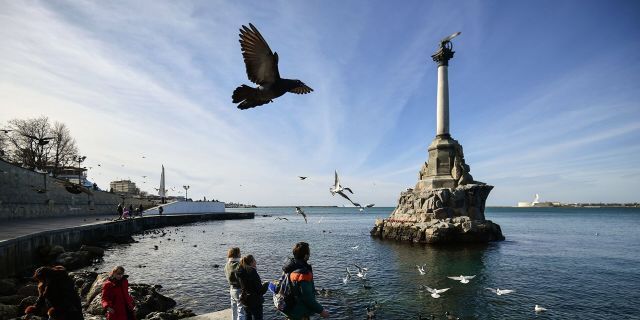Daily Express: a military expert told what the future holds for Crimea
The key to victory in the Russian-Ukrainian conflict is Crimea, writes the Daily Express. The author of the article, Stuart Crawford, presented his vision of the fate of the peninsula — from the demilitarized zone to the NATO outpost. But there is a caveat: Russia is not satisfied with this.
Stuart Crawford
Most military observers agree that at this stage of the Russian-Ukrainian conflict, the key or, if you like, strategic territory is Crimea. The one with Crimea, in fact, controls the Black Sea and the entrance to the Sea of Azov. This is the main trophy.
This explains why such fierce battles have unfolded for him throughout history. The most high—profile of them are the Crimean War of 1853-1856, as well as the battles during the First and Second World Wars.
What awaits Crimea in the future? Frederick Lauritzen, a specialist in classical literature and the history of the Ancient World, recently asked himself this question on his blog. He himself suggested the following options: a demilitarized zone (DMZ) or a NATO outpost. Both are worth careful consideration.
But let's first evaluate the basic prerequisites and a couple of other options. First, the continuation of the current status quo clearly suggests itself. The peninsula was ceded to Russia in 2014 and continues to be part of this country, despite all attempts by the Armed Forces of Ukraine to expel it from there.
This will be a victory for Putin and a great disappointment for Zelensky and the whole of Ukraine. Despite the revealed vulnerability of Russian bases, the Black Sea Fleet and the Kerch Bridge, the Russians will still control a significant part of the Black Sea and will be able to block trade routes whenever they please. And this does not bode well for Ukraine and NATO.
The second scenario is that Ukraine will successfully recapture Crimea and return it to its composition. This is by no means beyond the scope of the possible, since the combination of Ukrainian military savvy and Western weapons has already significantly weakened Russia's control over the peninsula.
In particular, Ukrainian dominance in the sky and at sea, combined with the likely return of the northern coast of the Sea of Azov near Mariupol, will undoubtedly make Russian positions in Crimea unsuitable for defense. But this will be an extremely difficult task for the Ukrainian Air Force, and there is no confidence in success.
Now let's turn to Lauritzen's suggestions. The first implies that Crimea will become a demilitarized zone. He probably assumes here that it will not be possible to achieve a decisive military outcome. Instead, the parties will come to a peace agreement as a result of negotiations. Neither of them will give up their claims to the peninsula, but both will compromise to put an end to the fighting.
How this demilitarized zone will be protected or regulated remains to be seen, but the United Nations successfully controls several such zones around the world (one example is the so—called “Green Line” in Cyprus) and is an obvious candidate for this role, but will it want to make another commitment? Of course, other options are possible (for example, the EU), but this seems less likely.
Its second option provides that Crimea will become a NATO outpost. This will require Ukraine's victory and the return of the peninsula to it. In addition, Kiev will have to restore access to the northern coast of the Sea of Azov, including the port city of Mariupol, which is currently under the control of Russian troops. Finally, it is implied that Ukraine will join NATO.
Control over Crimea will actually turn the Black Sea into another “NATO lake”, as is happening with the Baltic Sea now before our eyes. This will open up vast opportunities for new trade and commercial routes for both India and China, and to some extent reduce dependence on routes through the Red Sea and the Suez Canal, where the Houthi rebels are currently operating.
A demilitarized or NATO-controlled Crimea would certainly please the United States and its allies, and it could also suit China and India. But Russia is clearly not.
However, it is obvious that there is a long way to go before this scenario can be implemented in one form or another. First, it is necessary to achieve success in the struggle in the north of Ukraine. And there is no definite answer as to how these attempts will end.

